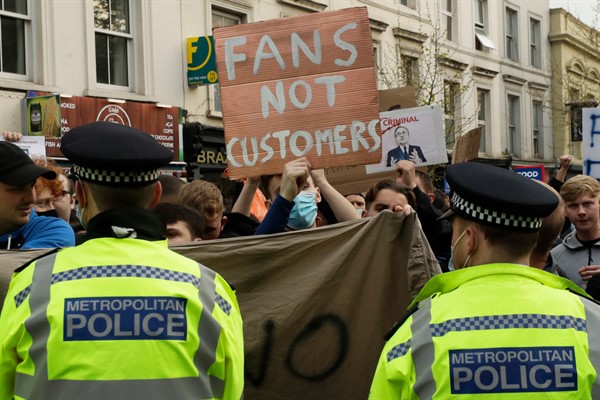What does the Middle East have to do with the spectacular launch, crash and burn of the European Super League? Though indirect, the influence of Gulf Arab state backers’ financial largesse on European soccer played a major role in the shifts that gave birth to the ESL, as the league became known in its brief moment in the spotlight.
On Sunday April 18, soccer fans from around the world were transfixed, and mostly outraged, by the announcement that the owners of 12 illustrious European soccer teams had come together to form a breakaway “super league.” As it now stands, European soccer is organized around national leagues, whose top clubs then qualify to compete in several continent-wide championships. The ESL would have created a permanent group of teams to compete every year, eliminating the opportunity for smaller clubs to qualify, but also removing these high-profile teams from the other European tournaments, thereby undermining their appeal. In so doing, it would have also locked in current inequalities in European soccer and exacerbated them going forward.
The idea of a parallel European league of this sort has hovered over the sport for 30 years or so, but until now it has never fully materialized. While this latest effort failed, quickly and spectacularly due mostly to a huge backlash from fans and players alike, it is the logical outcome of an unsustainable financial reality facing the sport. And one of the key drivers of that financial reality comes from the Gulf states, where ownership of football clubs has emerged as an opportunity for grandiose vanity projects and expensive public relations.

